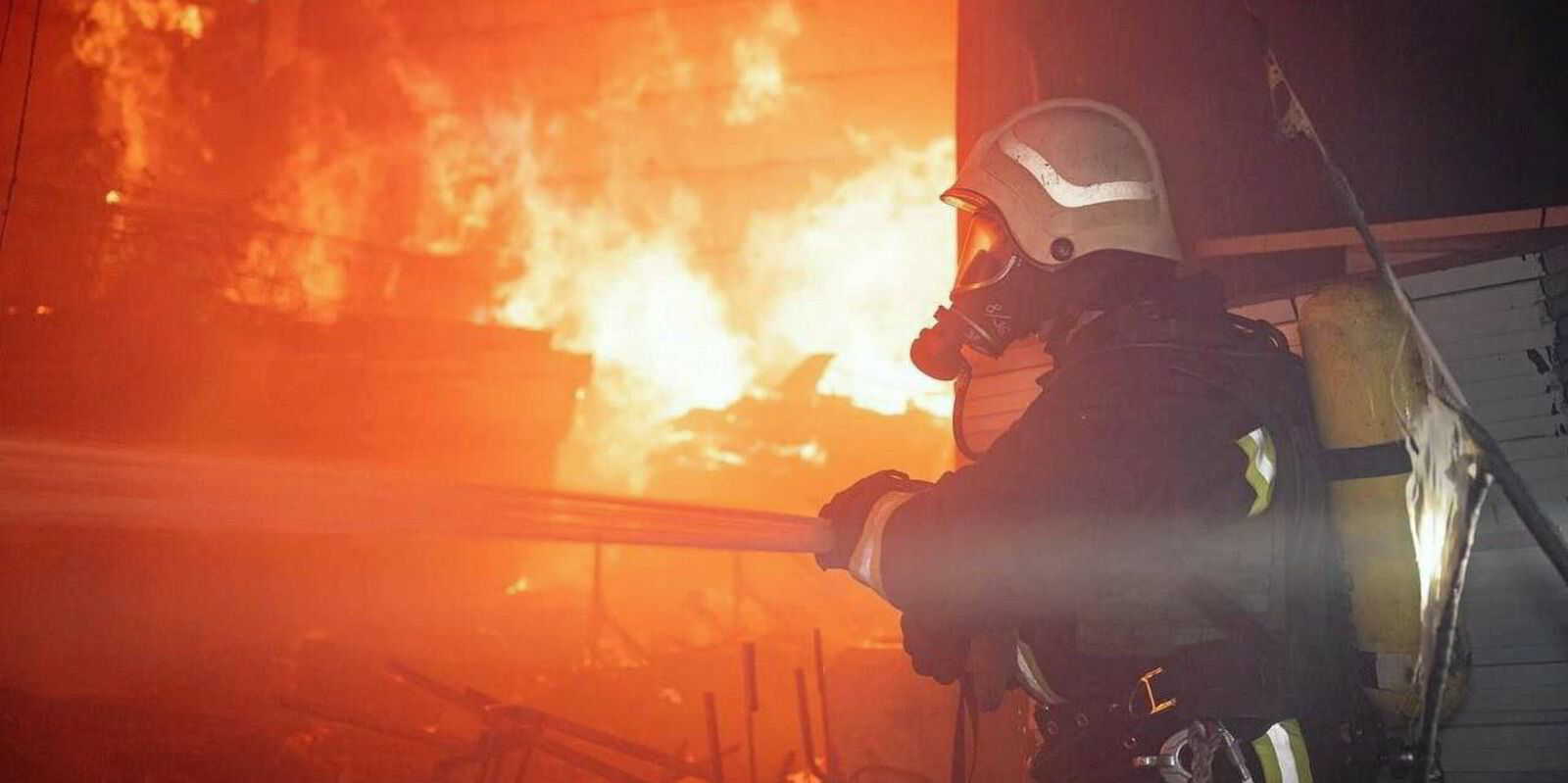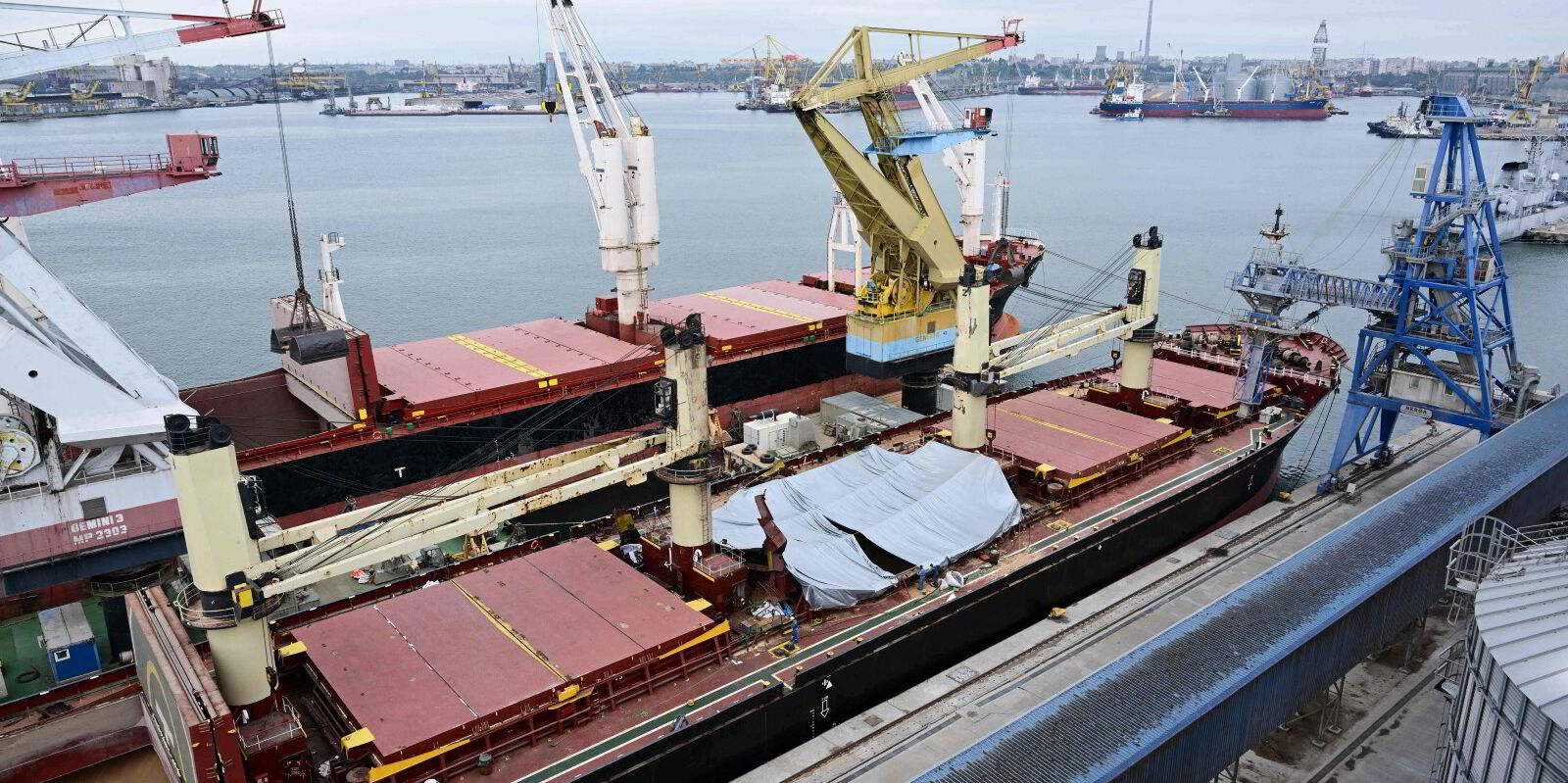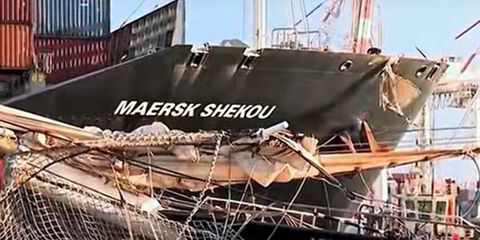Russian forces attacked a vessel trading in Ukraine for the third time in less than a month, in a sign that war risk in the war-torn country’s grain corridor is increasing.
The Russian defence ministry acknowledged in a statement on Sunday that one of its Iskander M-type missiles hit a vessel in Yuzhny port.
Moscow backed up its claim by releasing night-time video footage showing black smoke rising from a moored ship.
The defence ministry did not identify the ship targeted by its forces. Its English-language Telegram channel describes the vessel as a “container ship tanker”.
A computer-generated translation of the original announcement in Russian mentions a container ship.
Vessel trackers showed about 10 vessels at Yuzhny port on Sunday.
There was not a single container ship among them but several general cargo ships and handy bulkers that might be carrying containers.
“The missile got the target during… unloading,” the Russian defence ministry said, adding that the targeted vessel “delivered a batch of ammunition and weapons… from Europe”.
Official Ukrainian sources were quiet on the incident late on Sunday.
Ukraine’s southern air command admitted in a statement that two Russian ballistic missiles, probably of the Iskander M-type, attacked the Odesa region the night before.
The Ukrainian military did not elaborate on the target.
Ukrainian news website Dumskaya reported on Sunday that “a civilian dry cargo ship” was damaged in an attack that caused no human casualties.
Attacks become more frequent
This is the second time in about two weeks that Russian forces acknowledge deliberately attacking a vessel moored in a Ukrainian port.
On 21 September, the defence ministry said that a dry cargo ship was damaged as part of an air assault on warehouses in Odesa.
The identity of the ship damaged in the September attack was not disclosed.
Two vessels fitting a broad description of the ship made public at the time — the 6,300-dwt general cargo sisters Silver Lion (built 2005) and Golden Lion (built 2006) — have both left Ukraine since.
Moscow has said that the ships it targeted in September and October were carrying war material supplied to Ukraine by its Western allies.
Moscow has not assumed responsibility for a third strike on 11 September, in which a missile hit the 27,300-dwt Aya (built 1997) — an Egypt-bound grain ship that had just left Ukrainian waters.
Ukraine and the UK have blamed Russia for the Aya incident.
In a briefing released last week, the UK Ministry of Defence said the strike on the Aya probably resulted from poor, hasty targeting by a panicked Russian pilot using unreliable munitions.
None of the Aya’s crew came to harm and the damaged vessel managed to continue its journey after a stop in Constanta, Romania.
The incidents above have caused concern about Moscow possibly seeking to disrupt Ukraine’s commercial seaborne traffic, which has been going on surprisingly smoothly since the country managed to establish a maritime corridor in August last year.
More than 2,500 voyages have been recorded out of the ports of Odesa, Yuzhny/Pivdennyi and Chornomorsk since.
During this entire period, Russia has been frequently attacking Ukrainian port infrastructure in the three terminals, plus other Ukrainian terminals by the Danube.
Including the incident this weekend, four vessels were hit in the corridor as a direct or indirect result of Russian strikes.
Ukraine also attacked a Russian product tanker last year, claiming it was carrying fuel for Moscow’s invading army.
Other ship casualties were caused by mines floated by Russia or Ukraine in the Black Sea, or as a result of land battles in which Russian rocket-propelled grenades hit stranded and abandoned vessels in the blocked Ukrainian port of Kherson.
Ukraine has also blown up a grounded Russian product tanker near Kherson, claiming Russian forces used the hull as a command post.(Copyright)




